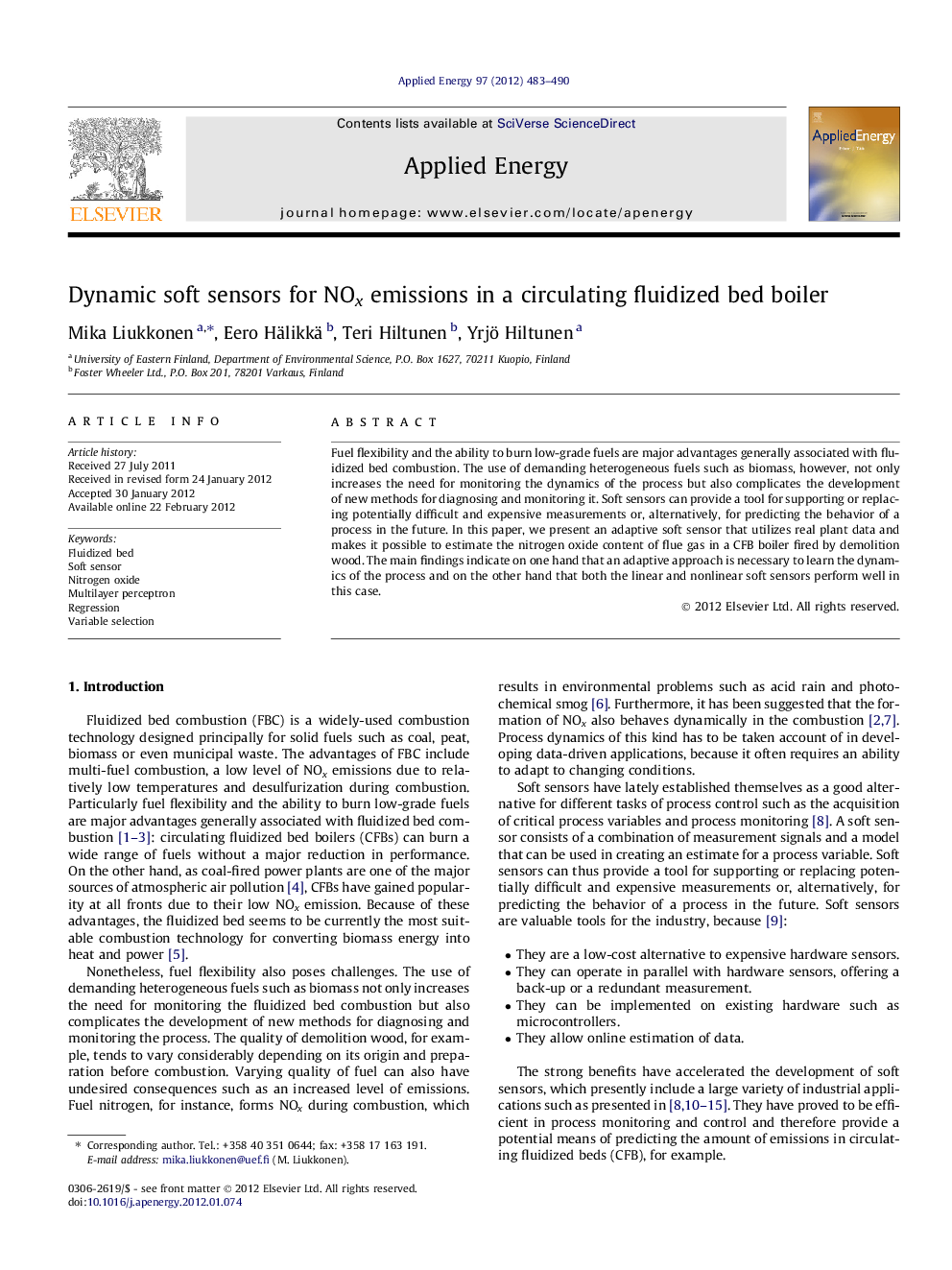| Article ID | Journal | Published Year | Pages | File Type |
|---|---|---|---|---|
| 243528 | Applied Energy | 2012 | 8 Pages |
Fuel flexibility and the ability to burn low-grade fuels are major advantages generally associated with fluidized bed combustion. The use of demanding heterogeneous fuels such as biomass, however, not only increases the need for monitoring the dynamics of the process but also complicates the development of new methods for diagnosing and monitoring it. Soft sensors can provide a tool for supporting or replacing potentially difficult and expensive measurements or, alternatively, for predicting the behavior of a process in the future. In this paper, we present an adaptive soft sensor that utilizes real plant data and makes it possible to estimate the nitrogen oxide content of flue gas in a CFB boiler fired by demolition wood. The main findings indicate on one hand that an adaptive approach is necessary to learn the dynamics of the process and on the other hand that both the linear and nonlinear soft sensors perform well in this case.
► We present a soft sensor for estimating the NOx emissions in a CFB boiler. ► The method includes an adaptive procedure for selecting variables. ► Either linear or nonlinear regression can be used in the soft sensor. ► The soft sensor is applied to process data from a 63 MWth CFB fired by demolition wood. ► Effect of process dynamics is significant, for which an adaptive method is used.
